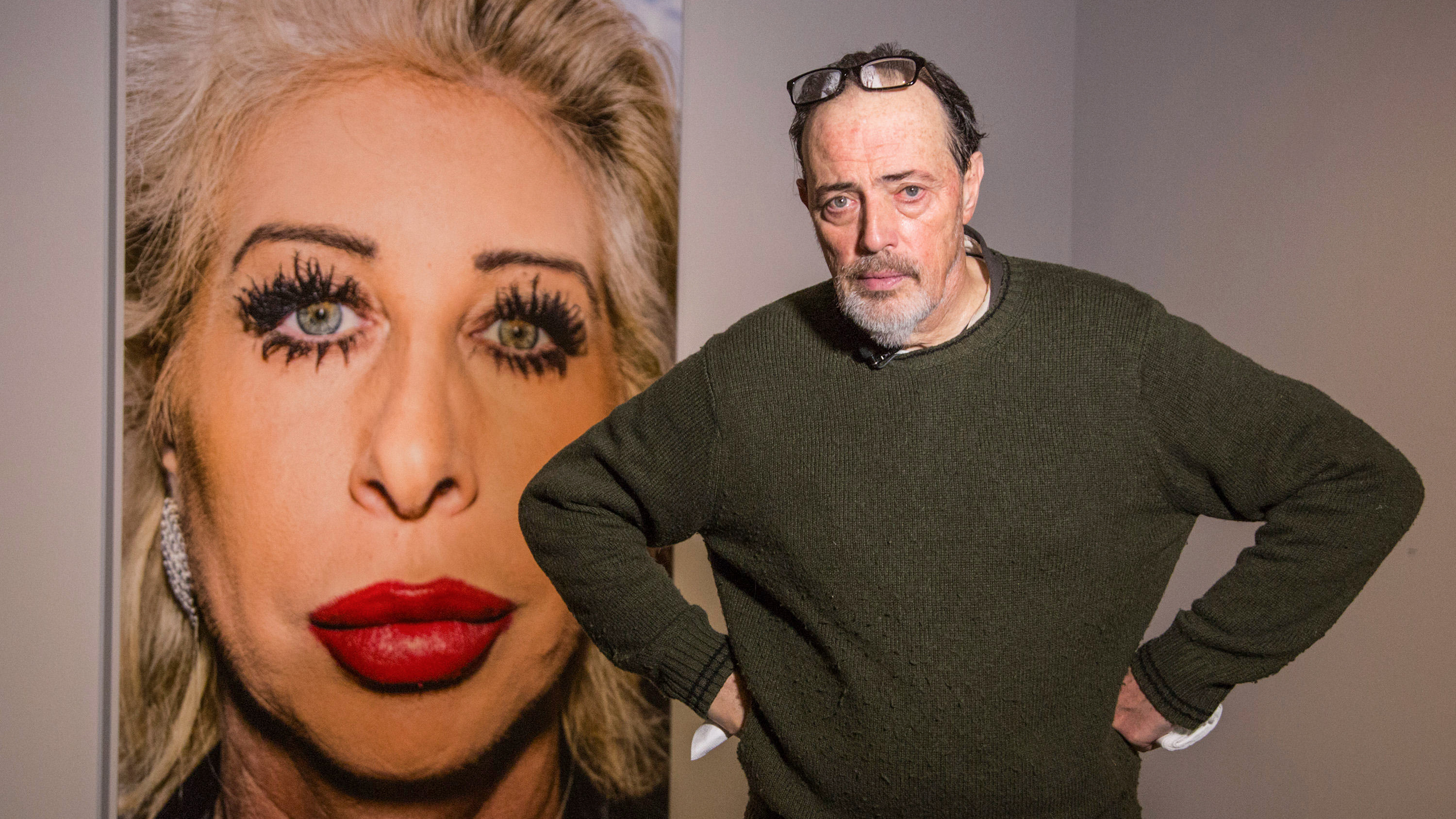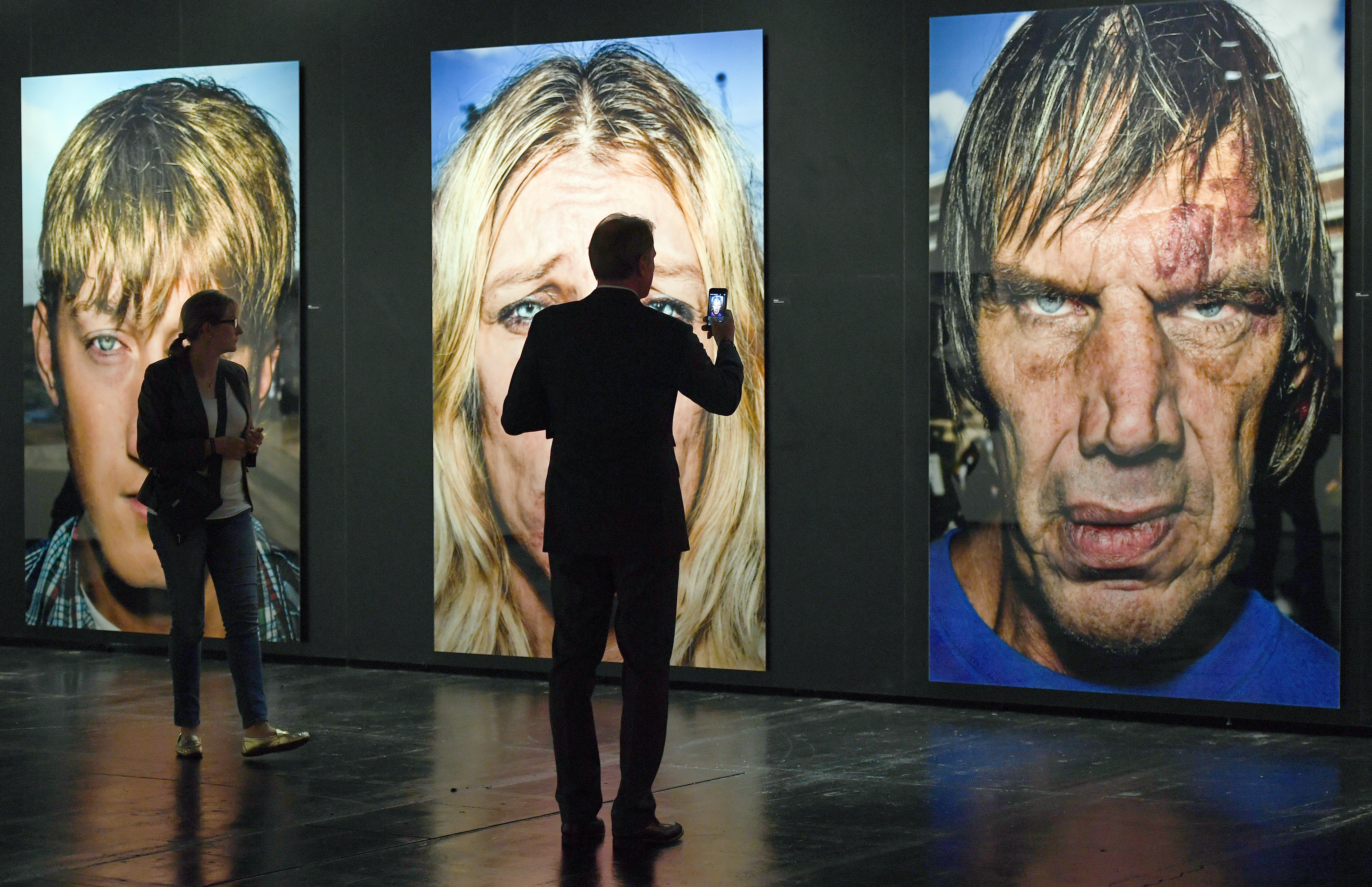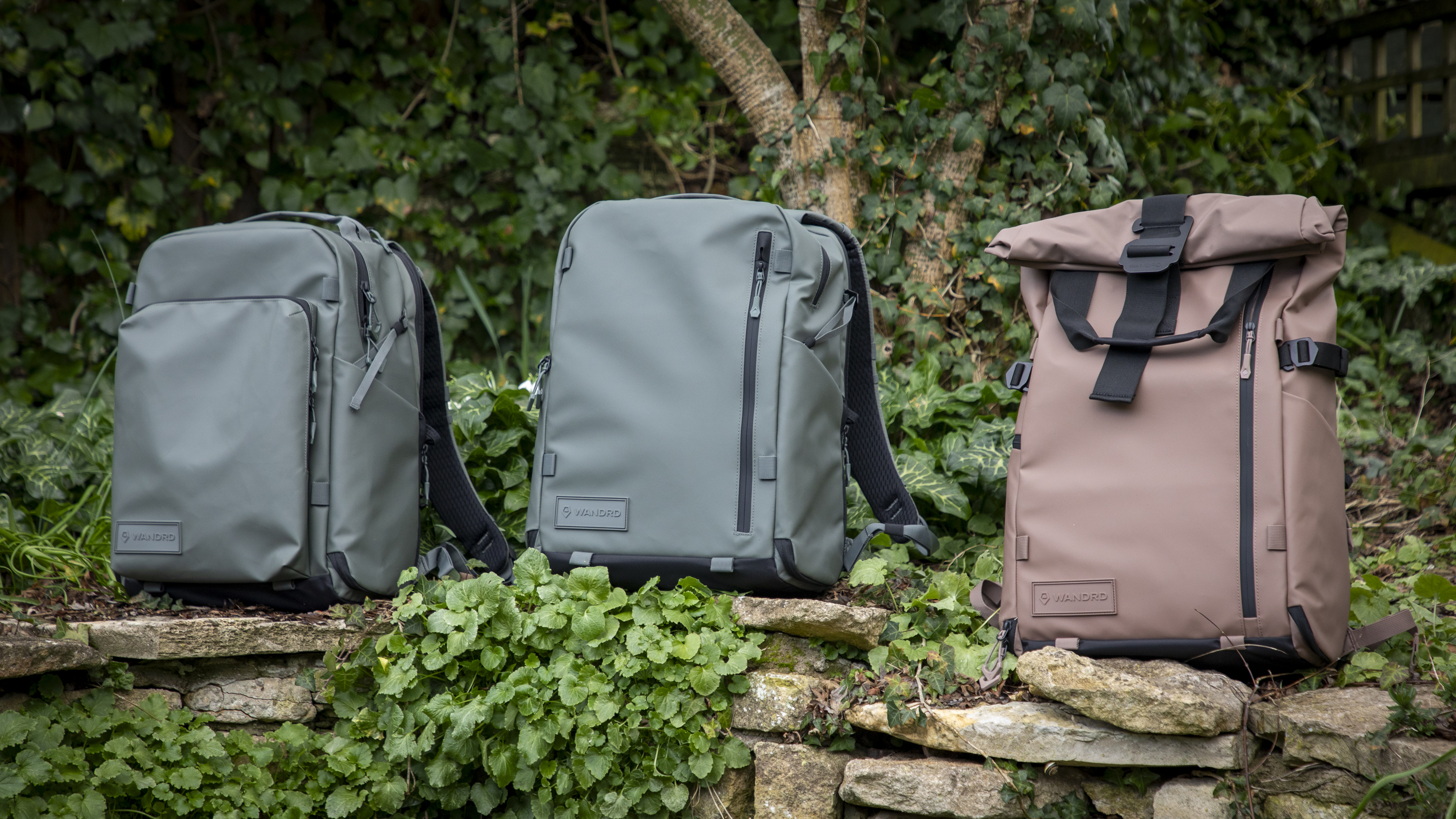Is Bruce Gilden "the internet's most hated photographer," or is he simply a true artist?
"Making people uncomfortable is kind of unavoidable when you're making art," says photographer Hunter Scott

The best camera deals, reviews, product advice, and unmissable photography news, direct to your inbox!
You are now subscribed
Your newsletter sign-up was successful
One of the most controversial photographers of the current age, Bruce Gilden, 77, is reviled by some, and by others, considered the king of street photography.
The technique that made him famous involved prowling the streets of New York, his home town, armed with his Leica M6, a 28mm lens, and an off camera flash.
Once a target was acquired, Gilden would jump in front of the person, jerk his camera and flash into the face of the unsuspecting pedestrian, and he’d get his shot.
His subjects are often older, more vulnerable-looking people, and his arguably unethical invasion of individuals' personal space and exploitation of their appearance solely for his own gains.
Many viewers of his work as well as contemporaries have criticised Gilden for his work and methods, with Joel Meitz calling him a “bully,” amid many accusations of exploitation, and sub average results.
Despite the harsh criticism and the divisive nature of his work, some of the photographs are incredible, and as a Guggenheim fellow, a member of Magnum Photos, a recipient of the European Publishers Award, among other accolades, there is something here that appeals to a lot of people.
A post shared by Bruce Gilden (@bruce_gilden)
A photo posted by on
Personally, if someone were to shove a camera in my face as I was going about my day, I’d be furious.
The best camera deals, reviews, product advice, and unmissable photography news, direct to your inbox!
Gilden has said of his subjects:
“A lot of people walking in the city are like lost in thought, they’re not paying attention, you know.”
I resent that assumption; for me, it feels a bit like when you’re walking down the street, minding your own business, and a man thinks you don’t look happy enough and shouts, “Cheer up, love, it might never happen.”
The act itself would be incredibly jarring, then finding out that this stranger is now profiting from my discomfort and my image, would have me calling my lawyer friends.
There are a lot of things to consider when startling and documenting a person like this. The first thing that sprung to my mind, especially in today's world, were issues of safety. What if the subject of so-called street photography was fleeing an abusive ex-partner, then suddenly their image is plastered all over a stranger's social media or gallery, with the location revealed?
Photographer and YouTuber Hunter Scott recently posted a video about Gilden entitled “The Internet’s MOST HATED Photographer.”
“If you look at a lot of Gilden's famous work, it was created well before the internet existed or at least as we know today. Now in 2024, everyone has at least two cameras in their pockets at all times, and the cities that we live in are constantly watching us wherever we go, every app, every website, every company is constantly violating our privacy every single day. As a result we've become a lot more sensitive to the idea of privacy and our own image, and in many ways that's completely justified.”
Describing it as a “modern twist to the Gilden hate,” Scott explains that while in the 1980s and 1990s, people might have been less programmed to react to Gilden and his camera, today the same behavior would almost certainly provoke a violent response.
As Scott points out, “making people uncomfortable is kind of unavoidable when you’re making art…and if you’re creating art from the heart as genuinely and vulnerably as you can, you’re probably going to piss someone off.”
While I understand that to create something unique and meaningful you have to take risks, and go above and beyond, I’m not sold on Gilden and his technique. I don’t like making people uncomfortable for reasons they will never understand, Gilden clearly didn’t have these reservations.
Despite my opinion, I do also agree with Scott on this:
“It isn't just a cheap visual trick he's inviting us to see ourselves in the photos too to on how maybe we might also drift through the city not really there more than that Gilden loves characters imperfect people curious people and using wide angle lenses and Flash tend to emphasize imperfections which again reminds us that we are no different after all nobody is perfect.”
Take a look at our guides to the best cameras for portraits, the best cameras for beginners, and the best cameras for professionals.

After graduating from Cardiff University with an Master's Degree in Journalism, Media and Communications Leonie developed a love of photography after taking a year out to travel around the world.
While visiting countries such as Mongolia, Kazakhstan, Bangladesh and Ukraine with her trusty Nikon, Leonie learned how to capture the beauty of these inspiring places, and her photography has accompanied her various freelance travel features.
As well as travel photography Leonie also has a passion for wildlife photography both in the UK and abroad.


